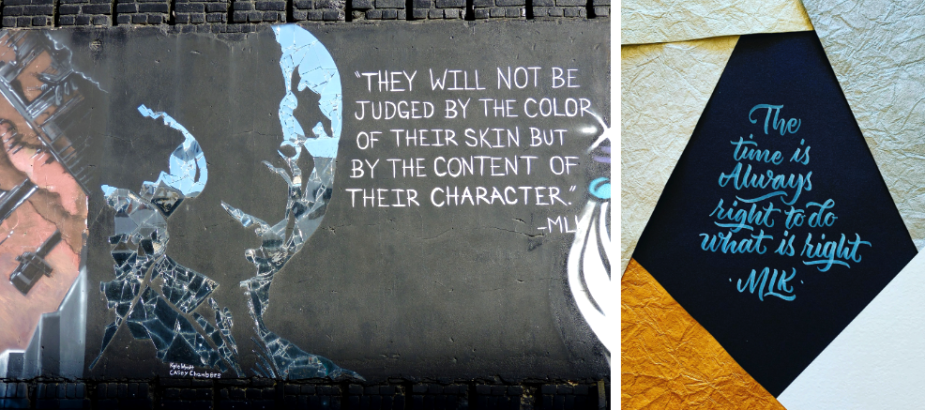What Does Lent Have to Do With Helping People in Need?

As part of our 40 Days of Hope Lenten calendar, we asked various supporters in our network to share reflections on why they pray, serve, or give. Read more at: www.hfny.org/lent
"But I know that my Redeemer lives, and at the end, he will stand on the dust. Even after my skin has been destroyed, yet I will see God in my flesh. I will see him myself; my eyes will look at him, and not as a stranger. My heart longs within me." — Job 19:25-27
Mercy in Montgomery
Retelling the injustice of the transportation system that led to the Montgomery Bus Boycott, Reverend Dr. Martin Luther King Jr. said, "I would get on that bus and physically get on the back of that bus, but my mind was up front. And I said one day I’m going to put my body where my mind is."*
Job is a character in the Bible who struggled immensely. However, Job experienced hardship with a similar tune of hope. This hope is evident when, after a spattering of laments, Job blurts out, "But I know that my Redeemer lives, and at the end, he will stand on the dust." As if to say, despite his tumultuous state, he will fix his eyes on the LORD. Job expected his body would wind up where his mind was: in the presence of a living God.
Indeed this is the hope we celebrate for Easter. The presence of our risen Savior, Jesus, is what animates Lent.
Mercy in Majesty
Yet, if you are like me, you may question the Lenten Season's purpose. Like, what am I accomplishing by not eating red meat? Wolfgang’s won’t eat itself, am I right?
Whatever you may [or may not] abstain from during this Lenten Season, I encourage you to walk toward Resurrection Sunday with expectation. Walk forward with confidence that our Lord is risen and alive. Active and present right now.
One way we can walk with this confidence is to fix our eyes on what we cannot see instead of what we can (2 Corinthians 4:18).
Job said, "I will see Him myself; my eyes will look at Him, and not as a stranger. My heart longs within me." In the middle of Job’s distress, he hastily fixes his eyes on God instead of his current circumstances. Through this small act, Job resurrects hope.
Turning to Jesus is accompanied by denial of sin and the wounds it causes. Turning to Jesus assumes turning away from sin, destruction, loss, and injustice. If you have experienced some of these hardships recently, the mercy of God is available to you in Jesus. In Jesus, there is no sin. With Jesus, there is no loss. Our heart longs for The Day.
Mercy in Manhattan
Unlike Job, we have the privilege of looking toward Easter, knowing that resurrection has come and is coming (Daniel 12:2, Acts 24:15). Our longing is not in vain. Our yearning is akin to being transported back to the Montgomery Improvement Association meetings, knowing that the plan will successfully bring justice. In Jesus’ resurrection, we have this kind of sure hope. Our eyes will behold him victorious over everything that ails us.
Moreover, the resurrection is power to actualize mercy in our current day (Job 19:26b, Luke 17:21). Jesus resurrected and is alive in the flesh! The same flesh we have right now. In Jesus, God assures His resurrection power affects our present state. So, ask yourself this question during Lent: Where am I resurrecting hope unto the glory of Jesus?
Then, consider how you might join Hope for New York in resurrecting hope for our neighbors in need. Join HFNY in believing, one day, there will be a New York City in which all people experience spiritual, social, and economic flourishing through the demonstration of Christ's love.
Then, put your body where your mind is. Be marshaled to serve the poor and marginalized in our great city. Be rallied toward unraveling the reality of resurrection power around you.
* Quoted from: The Autobiography of Martin Luther King Jr., by Clayborne Carson.
Brandon Cobb is now the Founding Pastor of Eden Church in Bergen County, New Jersey. Prior to church planting, he served as Executive Pastor at Renaissance Church.
